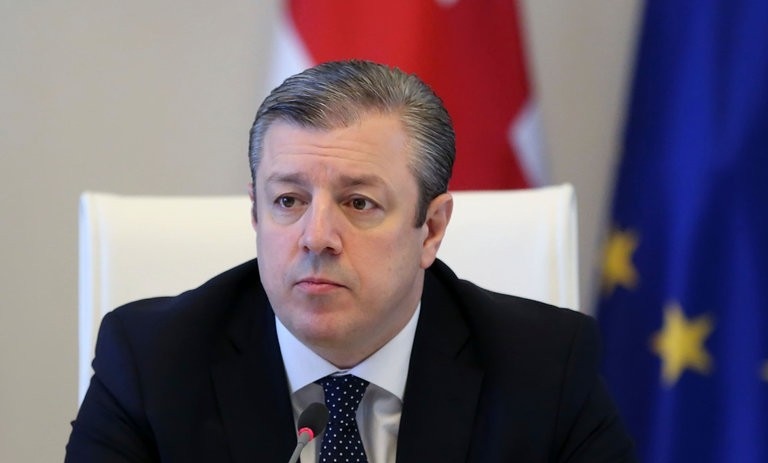Georgia’s Prime Minister resigns
June 14, 2018 | Expert Insights

Giorgi Kvirikashvili, the Prime Minister of the Republic of Georgia, has resigned after a series of disagreements with Bidzina Ivanishvili, leader of the ruling Georgian Dream party. The two men reportedly clashed over the state of the nation’s economy. The entire cabinet is also expected to step down.
Background
Georgia is a nation in the Caucasus region of Eurasia. Historically, the country was the object of rivalry between Persia, Turkey, and Russia. It was in 19th century when it was eventually annexed from Russia.
In 1991, after the collapse of the Soviet Union at the end of Cold War, Georgia became an independent state. However, it also became the theatre for conflicting interests. Both United States and Russia have clamoured for increased influence. In fact, Kremlin has voiced concerns over increasing US economic and political influence in the country. Russia has also objected to Georgia's aspirations to join NATO and the EU. Ties with Russia further deteriorated due to Moscow's support for the separatist regions of Abkhazia and South Ossetia.
Giorgi Kvirikashvili Prime Minister of Georgia from December 30, 2015 to June 13, 2018. During his political career, he was also the Minister of Economy and Sustainable Development from October 25, 2012 until September 1, 2015. He has also served as the Minister of Foreign Affairs and Vice Prime Minister. Kvirikashvili has led initiatives to advance Euro-Atlantic and European integration and highlight Georgia as an attractive location for foreign investment.
Analysis
In June 2018, the Prime Minister of the Republic of Georgia resigned from his position. Giorgi Kvirikashvili stepped down amid a disagreement with Bidzina Ivanishvili, leader of the ruling Georgian Dream party and cited differences in opinions as the reason.
“Different points of view have been outlined between me and the ruling team, specifically concerning the economic policy pursued by the government under my leadership," said Kvirikashvili at a special briefing held at the government administration on Wednesday. “I would like to emphasize that in recent months my opinion differed from the party chairman’s opinion on a number of fundamental issues," he added. "I think this is the moment now when the leader of the party should be given an opportunity to form a new cabinet."
Mamuka Mdinaradze, the head of the Georgina Dream faction in parliament, noted that a new government would now be presented within seven days. The nation’s economy has struggled in recent years and Kvirikashvili has often had to defend his own government’s policies in the process.
Recently, there have also been a wave of protests that have been staged by the citizens of the nation. A wave of anti-government rallies began on May 31 as a protest against the guilty verdict of two young men suspected of killing two teenagers in December. One of the protest leaders, Zaza Saralidze, and supporters have been demanding the government's resignation, saying the people that were actually responsible for the murder escaped punishment because their relatives worked in the Prosecutor-General's Office. Protestors have also expressed anger over a recent violent raid that took place in two Georgia music night clubs.
Meanwhile, Ivanishvili, who is a billionaire and Georgia’s richest man, took back the leadership of Georgian Dream on May 2018. Despite these protests, differences of opinions between the former Prime Minister and Ivanishvili have primarily been about Georgia’s economy. “There has been friction between the now former Prime Minister and Ivanishvili for some time,” said Paul Stronski, a senior Russia and Eurasia Program fellow at the Carnegie Endowment for International Peace, told VOA’s Georgian Service. “And, the wave of protests in Tbilisi over the past months indicates there is a large segment of the population that is unhappy with the status quo.”
Assessment
Our assessment is that the economic mismanagement is one of the key reasons why governments fail across the world. That seems to be the case in Georgia as well. Ultimately, Giorgi Kvirikashvili was unable to defend his government’s policies and the state of the economy to the public and the party leaders. The litmus test will be on Ivanishvili to prove that his agenda would prove to be far more effective for Georgia.








Comments